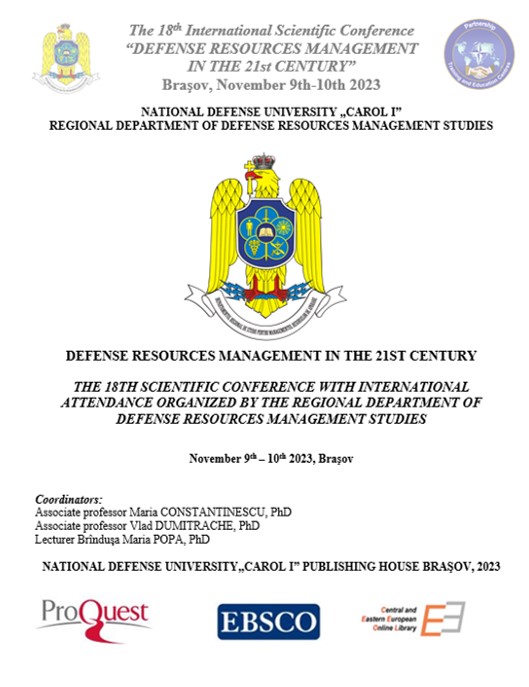INTELLIGENCE IN THE ERA OF DATA AND EMERGING TECHNOLOGIES: IMPACT ON SECRECY, SOVEREIGNTY AND INFORMATION SHARING
INTELLIGENCE IN THE ERA OF DATA AND EMERGING TECHNOLOGIES: IMPACT ON SECRECY, SOVEREIGNTY AND INFORMATION SHARING
Author(s): Ioana Hermina PaiusSubject(s): Government/Political systems, Security and defense, ICT Information and Communications Technologies
Published by: Regional Department of Defense Resources Management Studies
Keywords: Intelligence; Secrecy; Sovereignty; Information; Emerging Technologies; Security;
Summary/Abstract: Intelligence plays a critical role in the functioning of governments, societies, and companies. It is the process of collecting, analyzing, and distributing information to inform decision - making. Historically, intelligence was generally kept unseen and undisclosed by nations and organizations. However, with the emergence of new technologies and their capacity to generate tremendous amounts of data, the nature of intelligence is swiftly evolving. This essay further investigates how this transformation is affecting secrecy, stability, and collaboration. Secrecy has been a cornerstone of intelligence operations since their very beginning. It has been imperative to protect sensitive information and techniques from foreign adversaries and other potential risks. However, the development of new technologies is challenging this longstanding tradition. Above all, big data, AI, and machine learning are creating an abundance of accessible intel that is making it tough to keep intelligence activities fully concealed. For instance, social media platforms create massive amounts of data like personal info, location data, and connection networks - all of which can be used by intelligence agencies to detect threats and evaluate their behavior. On the other hand, the usage of this type of data for surveillance purposes has been heavily contested due to its intrusive nature and possible misuses of personal information.Sovereignty and intelligence have a close relationship - states have typically defended their right to gather and examine data within their borders, without foreign interruptions. Today, however, new technologies are complicating this concept. Cyberattacks and cyber espionage can be conducted remotely, while the web's anonymity allows it hard to discern who is behind an offence. For that reason, nations are demanding more international regulations and standards concerning the use of technology in intelligence collection - rules designed to guard their autonomy.Sharing of intelligence has long been an integral part of the information-gathering process, restricted to a few close entities. But with the help of modern technologies, such as cloud-based platforms, it is now possible to broaden this circle and share data in real-time. This evolution brings with it both advantages, such as increased collaboration, and risks like privacy and security issues as well as misuses of sensitive information.To sum up, data and new tech advancements are transforming the nature of intelligence by presenting fresh obstacles as well as opportunities for governments, societies and agencies. Despite the convenience that these creations bring when collecting and analyzing data, there is still concern about privacy, security, and morality issues. For this reason, it is essential to fashion a complete system that properly weighs the advantages of modern technologies against the safeguarding of personal privacy, safety and human rights.
Journal: Defense Resources Management in the 21st Century
- Issue Year: 18/2023
- Issue No: 18
- Page Range: 243-252
- Page Count: 10
- Language: English

